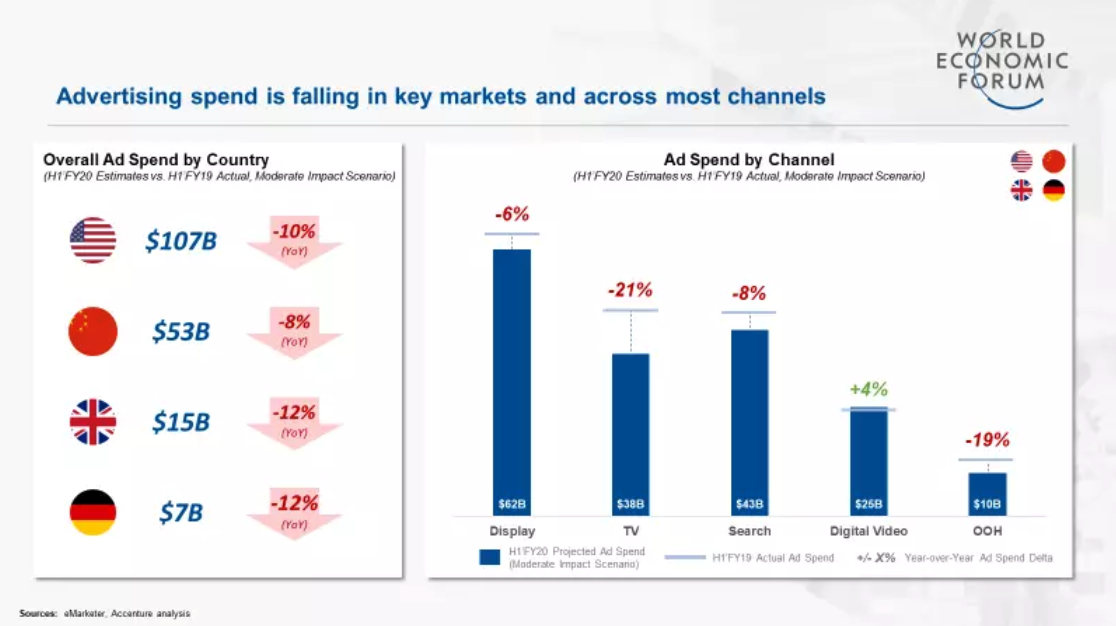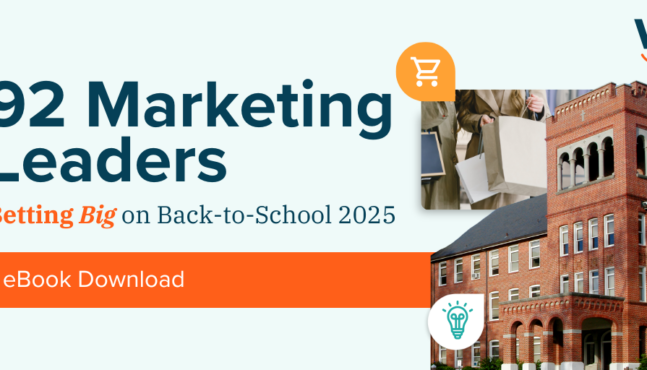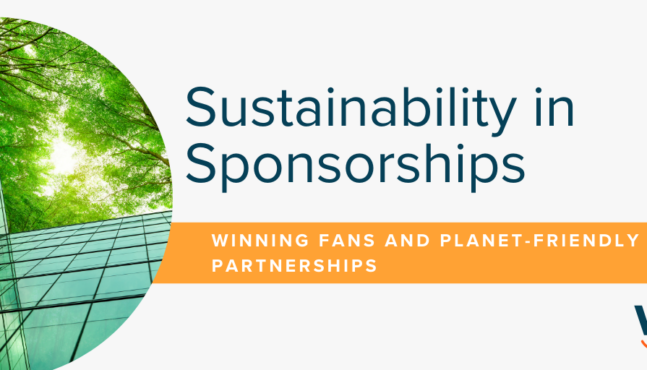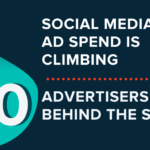
What Agencies Should Be Doing 6 Months Into COVID
Check out the Winmo blog agency hub for even more new business strategies.
In March, we published What Agencies Should Be Doing in This Downtime, with Tim Williams from Ignition Consulting Group. Now, almost six months later, we’re still adjusting to life amidst a pandemic, while also wondering how temporary these “unprecedented times” actually are.
Since quarantine began, there has been a considerable drop in worldwide advertising spending because wherever consumer behavior shifts, advertising spend shifts in response. According to the Interactive Advertising Bureau, almost a quarter (24%) of media buyers, planners and brands paused spending through Q2, while 46% indicated they would adjust their ad spend for the same time period.

Source: eMarketer, Accenture
Advertising agencies accounted for more than half of all reported layoffs in Q2, according to Forrester. Luckily digital and media agencies were less affected — partially thanks to their accelerated focus on, you guessed it, digital media.
However, even as layoffs and furloughs hit, brands still need agencies. The industry will survive, though it will look different on the other side. Bloated ad dollars and hyper-focused boutiques might go by the wayside, but change doesn’t mean death.
Here are five action items agencies can implement to continue their efforts six months into the pandemic:
1) Automate everywhere
Automated, data-driven services and creative production will continue to be your most important assets. Agencies can no longer successfully operate off of 2019-era timelines. By embracing automated production, you can significantly shorten production schedules and prove worth to clients.
Of course, strategy and creative ideation can’t be automated — and even efficiency software is only as good as the person managing it. Fortunately, automation does allow your team members to flex their muscles and learn new, marketable skills.
2) Become experts in virtual events
Today, it’s not enough to be digital-only (and it’s certainly not enough to be an experiential-only). With in-person events paused for the foreseeable future, virtual events intersect the worlds of specialized agencies. And your team is expected to be the authority, even as you learn on the fly.
Start by taking the time to understand the ins and outs of different virtual platforms. Experiment with content for Instagram Live, Zoom, and even Run The World for large-scale gatherings. Once you’ve decided on which tech works for which audience, focus on incentivizing attendance. As an agency, your client looks to you to advertise and monetize, so create materials, host giveaways, and be ready with creative ideas to get people signed on.
3) Get active on social media
Agencies often famously disregard their own digital presence to focus solely on clients. While Williams highlighted the importance of updating your website in March, putting that same effort into your social media is equally important.
Conduct a “following” audit on Twitter and Instagram to clean out old accounts and ensure that clients (brands and contacts) are there. Update logos, cover photos, and bios to reflect your most recent branding, too.
Most importantly, post! Engage in conversations with other agencies and influencers in your specific industry, ask questions and post polls to your followers to spark discussion, share personal updates from your team members (everyone loves a peek behind the curtain), like, retweet, comment, and implement social as a part of your daily routine.
4) Negotiate your lease
Implement a long-term, or even permanent, work from home strategy. The less money spent on leasing an empty office space, the more you’ll have to pay for those automation tools or even salaries. Some might say it’s not so simple and agencies will never be able to abandon their offices completely.
It’s true, many are locked into long-term leases and services that require heavy collaboration like creative and production, are difficult to maneuver from home. However, now’s the time to have honest conversations with landlords about your long term plans — decrease your physical footprint, relocate to a less expensive building under the same management, or even consider a retail space to house production needs.
5) Uncover how you’re meaningfully different
This one is pulled straight from Williams’ March post, but needs to be reiterated. Once your agency gets the attention of a prospective client, don’t waste time talking about “differences” that are not really points of differentiation at all; they are only points of parity dressed up in colorful language. Capitalize on this opportunity to scour every aspect of your business for meaningful ways you’re unlike other agencies.
As day-to-day production work moves increasingly in-house, clients are subsequently looking to outside partners to provide the insights and strategic thinking needed to grow their brands. Take this opportunity to develop competencies and offerings that are more valuable than basic campaign execution. Engage your team in this thought process and uncover high-value services.




